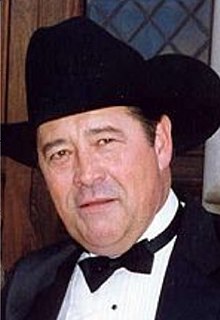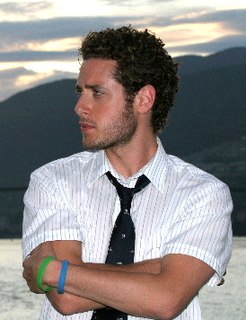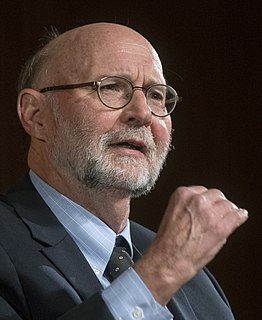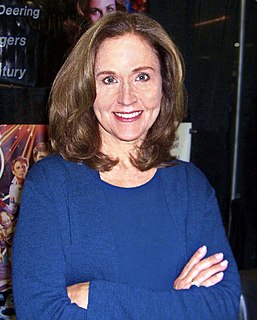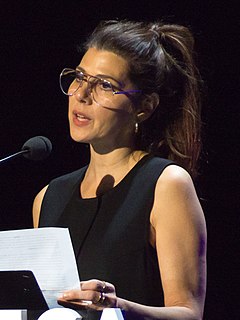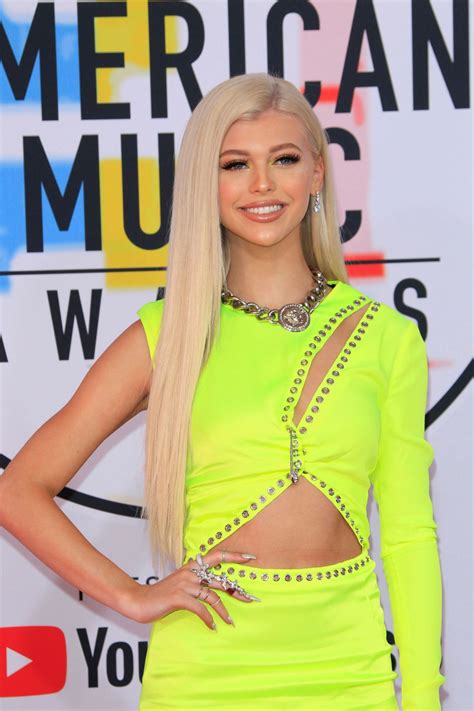A Quote by Eric McCormack
That was my big break [Lonesome Dove]. My first real kind of adult role on something really well-written. It was a spin-off of the miniseries, and I played Col. Mosby, a very dangerous, Southern colonel in post-Civil War, wandering the West.
Related Quotes
In high school, my first thing ever was I played Tony in West Side Story when I was about 17. I was a really shy kid and I just like forced myself to learn how to sing this one month because I loved West Side Story so much and I somehow managed to get the role. I had an afro and glasses, and the guy who cast me goes, "All right, the first thing to go is the afro and the next thing, I'm going to buy you contacts and we're going to get you..." So he kind of molded me into what it had to - that's still probably the hardest role I've every played in anything, the most taxing role.
When we started the show [Lonesome Dove], Suzanne De Passe - who had done the original miniseries and still owned the property and was turning it into this series - she brought in a lot of old friends - Diahann Carroll and Billy Dee Williams and Dennis Weaver. And we had an interesting collection off the top of these old seasoned actors. Billy Dee was lovely and iconic.
Lonesome Dove is a great book that had the rare fortune of being made into a great movie. And now, through Bill Wittliff's photographs, we have a third generation of Lonesome Dove artistry. The same creative power and conviction that allowed Larry McMurtry to transform a workaday scenario for an unproduced screenplay into one of the greatest novels of our time, and that transformed that novel into the greatest western movie ever made, are on display in this collection. A Book of Photographs from Lonesome Dove is a masterpiece begot by a masterpiece begot by a masterpiece.
This is a very proud moment for journalism. I think The New York Times and The Washington Post are genuine champions in this moment. The role that they are playing in democracy is the role that you hear about journalism playing in civics classes. Other people are doing great work, but the Times and the Post have really been leaders. The public is watching, and they are hungry. They know something is wrong, there's a lot of anxiety out there. There's a real sense that the mission of journalism is very clear.
We would also go to musicals. So Singing In the Rain, On the Town, and West Side Story. Especially West Side Story because played that a lot before VCRs, so that would be something that would be a big deal if it came on, you caught it. So that really started, my family was not in show business at all but really loved that kind of thing.
I think there's something very dark in the South African psyche. I think we live a lot of the time in a state of a very low-grade civil war; the levels of violence in South Africa are extremely high. In a way, the civil war that never happened is being played out in a covert way, so we live with a lot of very ugly things.
What it targets is not something that's really looked at a lot in terms of the war. This is stuff that's off the beaten path in terms of what we think of every time you start a Civil War history or a Civil War presentation. It's usually about the military and the soldiers and all that stuff. And this is not. It's the backdrop to a place and a time and circumstances that didn't have anything to do with that.
Liberals say this over and over and over again to hide the actual history, which is why I go through the specifics on the big segregationists in the United States Senate, the ones who signed the Southern Manifesto and the ones who voted against the 1964 Civil Rights Act. There's a panoply of issues to consider. The first time they objected to the Federal government doing something was when it came to civil rights legislation. This is in stark contrast to the very few Republicans who voted against the '64 Civil Rights Act.
I don't know if Britain ever really achieved that much glamour. We had post-war austerity rather than post-war prosperity, and our cultural products of the time include some pretty dour kitchen-sink dramas of the A Kind of Loving variety. (This kind of film seems disillusioned with the sixties before they've even really begun.)
I'm working on a script right about Civil War re-enactors who go back in time to the actual Civil War. It's kind of a big, crazy Back to the Future comedy. So, of course, it's the Civil War - I play the banjo. I was just having a conversation with one of the producers about some of the material and he was like, 'You know, we have to work in a scene where you play the banjo. And I was like I'll get behind that.
I just kind of talk about what's happening in my life and it's kind of like a therapy session. Usually something good comes out of that. Or sometimes other writers will come to me with ideas and then I'll put my own spin on it. It's usually really collaborative and open and it's very therapeutic for me as well.

